Comics with a calling
Workshop teaches participants the basics of comic communication.
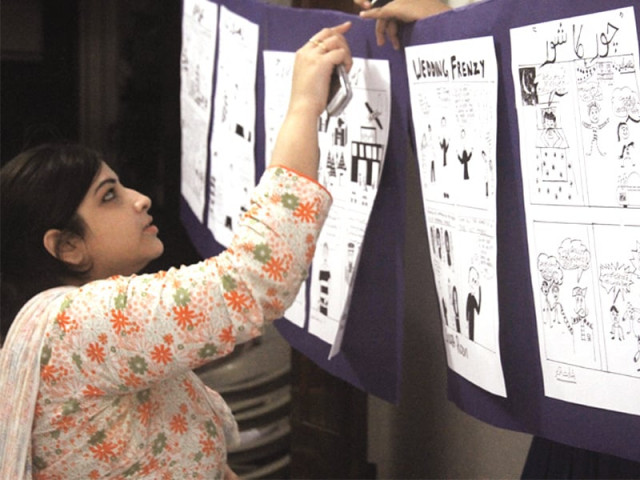
The fan stirs the breeze in a small room at the Human Rights Commission Pakistan. It’s the final day of World Comic’s grassroots workshop on tolerance, and 28 participants, aged 12 to 40, are busy with their display.
It’s a grand affair involving tape, scissors, posters and twine. The participants — students, teachers, graphic designers and office clerks — have spent three days illustrating personal stories and learning the basics of comic communication. Their comic-speak has grown increasingly sophisticated. English words like visual script, ‘foreground’ and ‘long-shot’ pepper Urdu conversations.
The room resounds with laughter and chatter, blending into the din of Khadda market. Students snap pictures with their phones and discuss the nuances of specific comics. Despite the fact that a variety of religions, geographies, ethnicities and economic classes are represented here, there is palpable camaraderie.
“We encourage them to write their own stories in their own language,” said Nida Shams, a full-time volunteer for World Comics Network Shams. “We taught the process of writing, drawing and inking, so now they have what we call comic wall posters.”
Participants are encouraged to post on bus stops, electric poles and university campuses as a means of owning their public sphere. The posters explore issues such as religious and ethnic discrimination, religious hypocrisy, street violence, political and media criticism and Pakistan/India relations.
World Comics Network started in Finland in 1997, to educate laypeople about sharing their views via comics. The volunteer-run World Comics India (WCI), founded in 2003, oversees about 200 workshops each year in India, Pakistan, Sri Lanka and Nepal. Five years ago, the Karachi-born Shams spearheaded the effort in Pakistan.
She attended a World Comics workshop in Sri Lanka in 2006, when she was still a graphic designer, working freelance for various NGOs. However, after a second workshop in Lahore, led by WCI founder and political cartoonist Sharad Sharma, she decided to give up her current job and lead workshops. Now she organises about 25 workshops a year, but she suspects that the actual number of workshops in Pakistan is nearly double of that.
“Part of what we do is train trainers,” she said. “A lot of the people here have started workshops in their villages or universities.”
Benjamin Pascal, 30, was especially active in the workshop, despite the fact that he is blind. “I thought the management would send me back because this is the work of eyes,” he said. “But they let me complete my comic, they promoted my story.”
Pascal’s comic relates the experience of his recent marriage. “Six months ago I married a sighted girl,” he explained. “She’s a beautiful girl, and her family, our society, everyone opposed the marriage. Just her very good friends and my friends supported us. So I changed the character and changed the disability; I put limping instead of blindness. But I wanted to give a message that disability cannot be the reason of rejecting anybody for any relationship, because disability is natural.”
Like Pascal’s, many of the stories are autobiographical, but details are disguised. A female may use a male character and a lady who does hijab may draw characters in western costume.
Since March 2011, Pauline John has attended four workshops. John has now led two workshops in Karachi and one women’s only workshop in a beauty parlour in Mirpurkhas.
“There were some local issues of village people, like drugs, alcohol and beatings,” she said. “There was also an issue of early marriage. Girls don’t want to get married early, they want to be educated. We took them to the leaders, because their children made these comics. Nobody was angry because they realised these stories belong to them.”
Meanwhile, WCI has also published one book, Bolti Lakeerain, with comics collected over five years of workshops in Pakistan. “It’s the first comics anthology of Pakistan,” said Shams.
Published in The Express Tribune, July 24th, 2011.

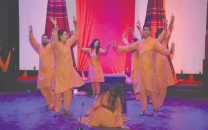
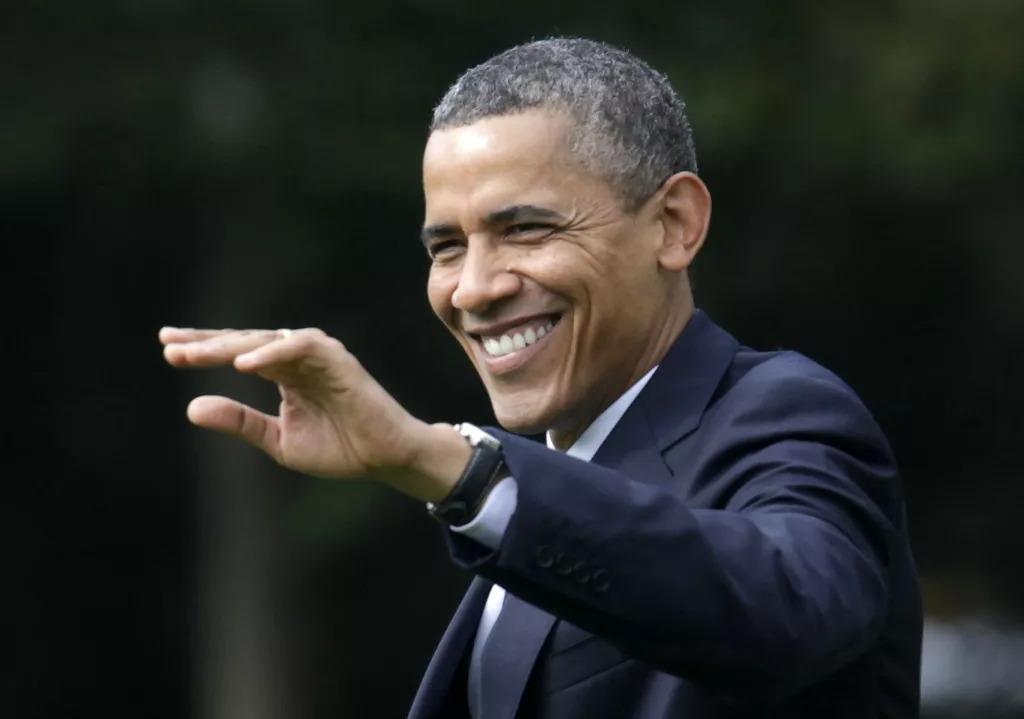

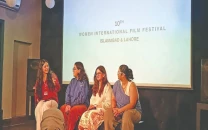

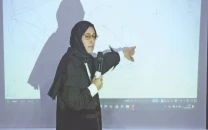











COMMENTS
Comments are moderated and generally will be posted if they are on-topic and not abusive.
For more information, please see our Comments FAQ